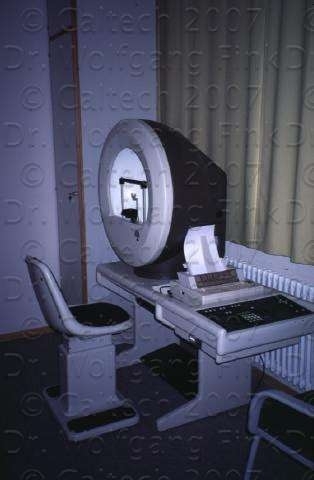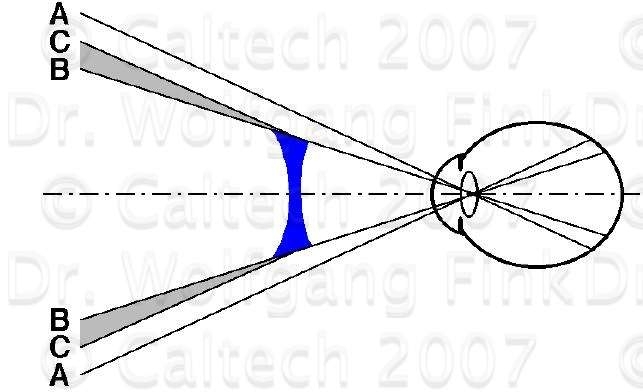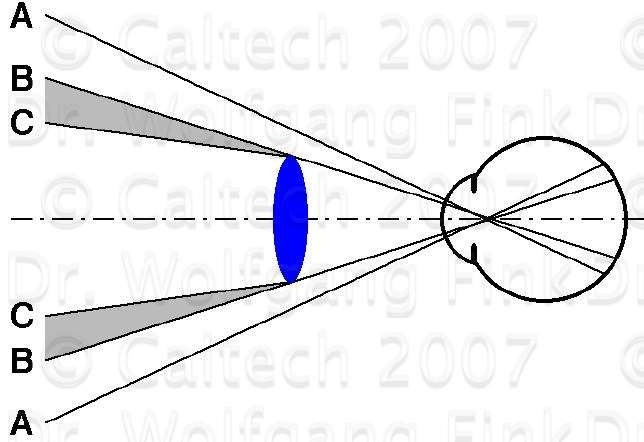Refractive Scotomata in Perimetry
|
Adequate correction is an essential prerequisite for precise perimetry. Therefore, not only the correct glasses have to be chosen, but also their positioning should be properly determined. Otherwise, a distortion of the stimulus grid, as well as a (area enlarging/reducing) distortion of the stimuli themselves, can occur. Therefore, scotomata may be simulated in visual fields which are purely optically evoked (so-called refraction scotomata), because the light stimulus is mapped on an enlarged/reduced retinal area, thereby reducing/increasing light density. Tübingen Automated Perimeter |
 |
High myopia corrected with a biconcave lens:

Emmetropic view
Place your mouse over the image to see:
TAP-2000 stimulus grid from the viewpoint of a high myopic person corrected with a biconcave lens
High hyperopia corrected with a biconvex lens:

Emmetropic view
Place your mouse over the image to see:
TAP-2000 stimulus grid from the viewpoint of a high hyperopic/aphakic person
corrected with a biconvex lens (annular scotoma)
Wolfgang Fink, Ph. D.
Senior Researcher at Jet Propulsion Laboratory (JPL)
Visiting Research Associate Professor of Ophthalmology at University of Southern California (USC)
Visiting Research Associate Professor of Neurosurgery at University of Southern California (USC)
Visiting Associate in Physics at California Institute of Technology (Caltech)
Mailing Address:
California Institute of Technology
Visual and Autonomous Exploration Systems Research Laboratory
15 Keith Spalding (corner of E. California Blvd & S. Wilson Ave)
Mail Code 103-33
Pasadena, CA 91125
USA
Phone: 1-626-395-4587
Fax: 1-626-395-4587
E-mail: wfink@autonomy.caltech.edu

